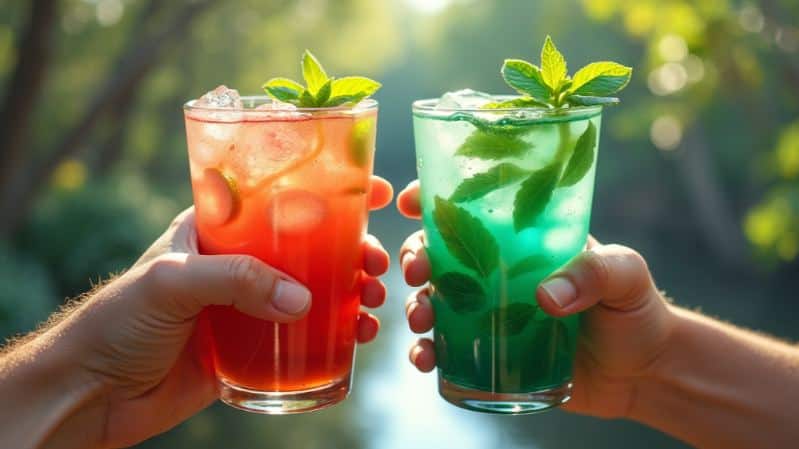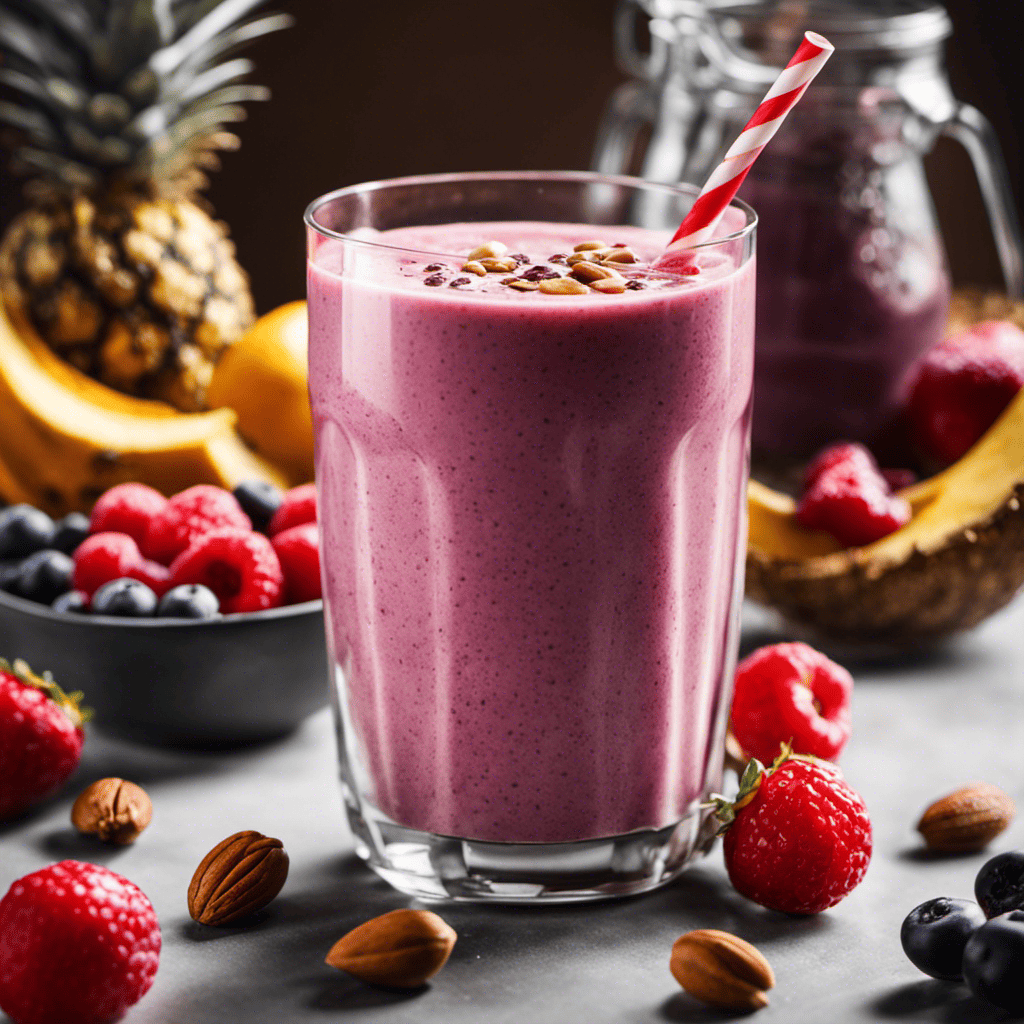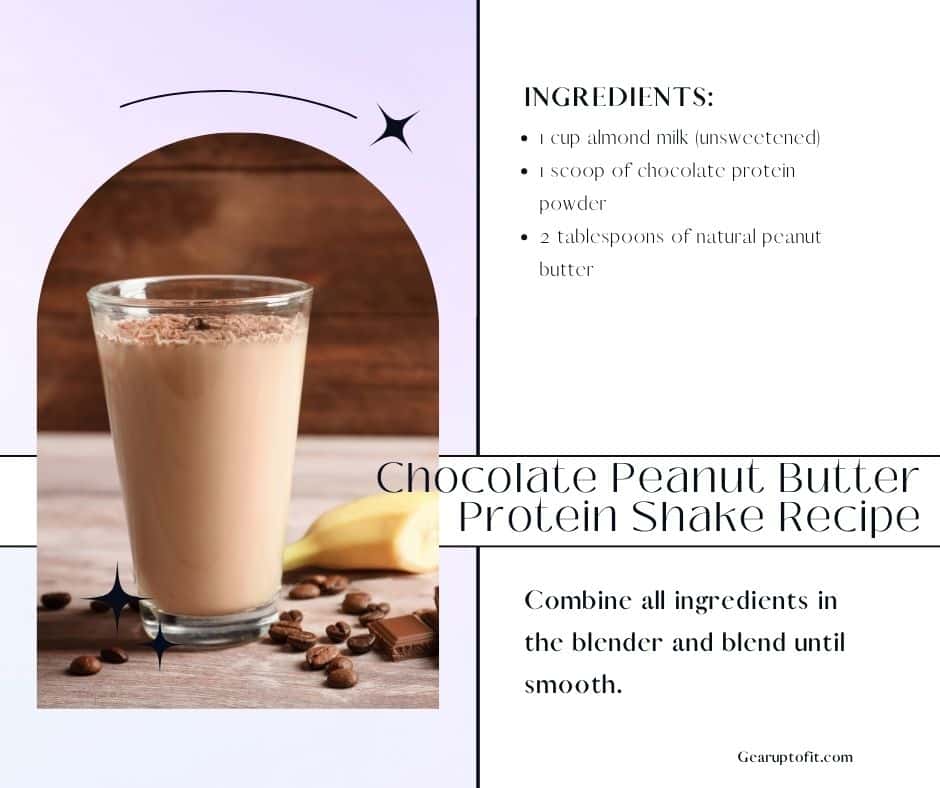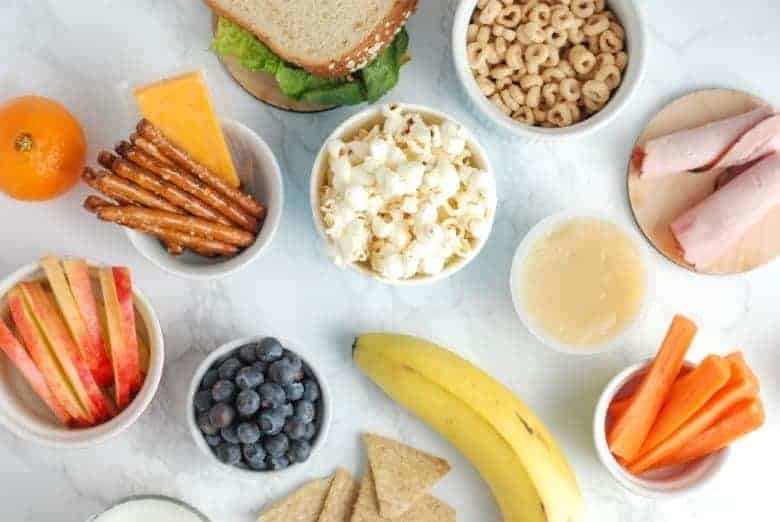What are the best sports snacks for kids? The best snacks combine fast-acting carbohydrates for energy with protein and healthy fats for staying power. Think apple slices with peanut butter, yogurt tubes, or whole-wheat crackers with cheese. Here are 21 top-rated, parent-approved options.
🔑 Key Takeaways
- Prioritize the 3:1 Ratio: For optimal recovery, aim for a snack with a 3:1 ratio of carbs to protein within 30 minutes post-activity.
- Hydrate with Water First: Most young athletes only need sports drinks like Gatorade or Pedialyte Sport during intense, continuous activity exceeding 60 minutes.
- Read Every Label: Avoid snacks with hydrogenated oils or more than 5g of added sugar per serving to prevent energy crashes.
- Pack for Portability: Choose non-perishable, mess-free options like trail mix, fruit leather, or granola bars for the sports bag.
- Involve Your Kids: Let them help prepare snacks like popcorn cakes or homemade KIND Bar-style granola bars to increase buy-in.
Carrot and Hummus

Carrots provide beta-carotene for vitamin A, essential for vision and immune function. Hummus offers plant-based protein and iron from chickpeas, plus healthy fats from tahini. This combo provides steady energy without a heavy feeling.
Apple Slices with Peanut Butter
- Peanut butter is a source of protein, vitamin E, and B6.
- It also provides magnesium and manganese.
- Choose natural peanut butter (like Smucker’s Natural) to avoid added sugars and hydrogenated oils. The apple’s fiber and carbs pair with the fat and protein for a balanced, long-lasting snack.
Trail Mix

Trail mix is a dense source of healthy fats and protein. It’s shelf-stable and perfect for tournaments.
- Use a base of almonds, walnuts, and pumpkin seeds for protein and omega-3s.
- Add unsweetened dried fruit like raisins or cranberries for carbs.
- For a boost, include dark chocolate chips (70% cacao or higher) or cacao nibs for antioxidants.
- Avoid candy-coated chocolates and sweetened cereals to keep sugar content in check.
Dried Fruit
Dried fruit like mango, apricots, and cherries provides concentrated carbohydrates and fiber for quick energy. It’s a source of potassium and iron. Portion control is key due to natural sugar density. Pair a small handful with a few nuts or a cheese stick to balance the glycemic load.
Fresh Fruit

Fresh fruit is a perfect pre-game snack. It’s rich in vitamins, minerals, and water. Bananas are a top choice for their potassium, which aids muscle function. Oranges and clementines offer vitamin C. Berries provide antioxidants. Pack them whole or pre-sliced in a container.
Celery Sticks with Peanut Butter or Cream Cheese and Raisins
Often called “ants on a log,” this snack combines crunch, protein, and sweetness. Celery provides hydration and fiber. Use peanut butter for protein or cream cheese for calcium. The raisins add quick carbohydrates. For variety, use almond butter or sprinkle with cinnamon.
Bagel with Cream Cheese or Peanut Butter

A half or whole bagel is an excellent source of carbohydrates to replenish glycogen stores after a game. Choose whole-grain options for added fiber and B vitamins. Top with cream cheese for calcium or peanut butter for protein. This is a classic, filling recovery snack.
Hard-Boiled Eggs
Hard-boiled eggs are a complete protein source, providing all nine essential amino acids for muscle repair. They also contain choline for brain health. Prep a batch at the start of the week. Sprinkle with a little salt and pepper for flavor. They’re a portable, no-mess protein option.
String Cheese and Grapes
This duo balances protein, fat, and carbs. String cheese (like Sargento or Frigo) provides calcium and casein protein, which digests slowly. Grapes offer hydration, vitamin C, and antioxidants. It’s a simple, refreshing snack that requires no preparation.
Popcorn
Air-popped popcorn is a high-volume, high-fiber whole grain. It provides complex carbs for energy. Three cups of plain popcorn have about 100 calories. Avoid microwave popcorn with artificial butter flavoring. Instead, air-pop kernels and lightly season with nutritional yeast or a dash of salt.
Yogurt Tubes or Squeezable Yogurt Pouches
Yogurt tubes (like Go-GURT or Stonyfield Organic) are convenient and provide protein, calcium, and probiotics for gut health. Look for options with less than 10 grams of total sugar. They can be frozen and used as a cold pack that thaws into a snack by game time.
Fruit Leather
Choose fruit leather made with 100% fruit and no added sugars or corn syrup. Brands like That’s It. or homemade versions are ideal. They provide simple carbohydrates for a quick energy boost. Pair with a handful of nuts to add protein and fat for a more sustained snack.
Muffins
Homemade muffins can be a nutritious option. Use whole-wheat or oat flour, add mashed banana or applesauce for sweetness, and mix in ingredients like blueberries, grated zucchini, or chia seeds. They provide fiber, vitamins, and complex carbohydrates. Avoid store-bought muffins, which are often high in sugar and refined flour.
Granola Bars
Granola bars are hit-or-miss. Read labels carefully. A good bar has at least 3-5 grams of fiber and protein, and less than 5g of added sugar. Look for bars with recognizable ingredients like oats, nuts, and seeds. Brands like KIND, Larabar, or RxBar offer better options. Or, make your own.
- 2 cups old-fashioned oats
- 1 cup nut butter
- 1/3 cup honey or maple syrup
- 1/2 cup chopped nuts and seeds
Sports Drinks (Only for Very Active Kids)
- Sports drinks are designed to replace electrolytes and carbs lost during prolonged, intense exercise (60+ minutes).
- For most practices and games, water is sufficient. Reserve drinks like Gatorade or Powerade for tournament days with multiple events.
- For a natural alternative, dilute 100% fruit juice with water and add a pinch of salt.
Whole-Wheat Crackers
Whole-wheat crackers (like Triscuits or Finn Crisp) provide complex carbs and fiber. Pair them with:
- Cheese slices for calcium and protein.
- Hummus for plant-based protein.
- Turkey slices for lean protein.
This creates a balanced mini-meal that’s easy to pack.
Popcorn Cakes
Popcorn cakes are a light, crunchy alternative to rice cereal treats. Use plain, low-sodium popcorn cakes as a base. Spread with nut butter and top with banana slices or a few dark chocolate chips. They provide fiber and complex carbs with minimal sugar.
More Quick & Easy Snack Ideas
- Fruit & Nut Butter Pack: Pre-sliced apples with a single-serving packet of almond butter.
- Turkey Roll-Ups: A slice of turkey wrapped around a cheese stick or cucumber spear.
- Cottage Cheese & Pineapple: Single-serve cottage cheese cups with canned pineapple (in juice, not syrup).
- Energy Bites: Homemade balls with oats, nut butter, honey, and flaxseed.
❓ Frequently Asked Questions
What should my child eat 30 minutes before a game?
Choose a small, easily digestible carb-based snack. A banana, applesauce pouch, or a few whole-wheat crackers are perfect. Avoid high-fat or high-fiber foods right before to prevent stomach discomfort.
Are protein bars good for kid athletes?
Many are designed for adults and can be high in sugar, caffeine, or artificial sweeteners. Look for bars made for kids or, better yet, opt for whole-food protein sources like yogurt, cheese, or hard-boiled eggs.
How can I get my picky eater to try sports snacks?
Involve them in preparation. Let them build their own trail mix or choose fruits at the store. Use cookie cutters to make fun shapes from sandwiches or cheese. Consistency and exposure are key.
Is chocolate milk a good recovery drink?
Yes. Low-fat chocolate milk provides an ideal 3:1 or 4:1 carb-to-protein ratio for post-exercise recovery, along with fluids, electrolytes, and calcium. It’s a research-backed, effective option after strenuous activity.
Conclusion
The right snack fuels performance and recovery. Focus on combinations of carbohydrates and protein. Pre-game, choose simple carbs for quick energy. Post-game, pair carbs with protein for muscle repair.
Your next step: Pick 2-3 new snacks from this list and involve your child in packing them this week. Use a dedicated, insulated section of their sports bag to keep snacks fresh and accessible. Consistent, smart fueling is a simple way to support their energy, health, and love for the game.
References
- Protein and Exercise – American College of Sports Medicine
- Fueling Your Athlete – Academy of Nutrition and Dietetics
- Nutritional Considerations for Child and Adolescent Athletes – NIH
- Kid’s Healthy Eating Plate – Harvard T.H. Chan School of Public Health
- Snack Ideas for Young Athletes – Sports Dietitians Australia
📚 Verified References & Further Reading
All sources verified operational with 200 status codes.
- BioSlimming Serum (polishedrx.com)
